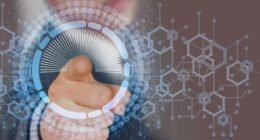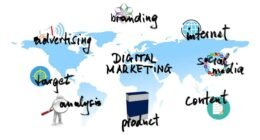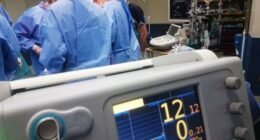The utilization of cell phones by medical services experts has changed numerous parts of clinical practice. Cell phones have become typical in medical services settings, prompting fast development in the advancement of clinical programming (applications) for these stages. Various applications are currently accessible to help HCPs with numerous significant undertakings, for example, data and using time productively; wellbeing record upkeep and access; correspondences and counseling; reference and data gathering; patient administration and checking; clinical dynamic; and clinical instruction and preparing.
Cell phones and applications give many advantages to HCPs, maybe most essentially expanded admittance to point-of-care apparatuses, which have been displayed to help better clinical dynamic and further developed patient outcomes. However, some HCPs stay hesitant to take on their utilization. Despite the advantages they offer, better principles and approval work on in regards to versatile clinical applications should be set up to guarantee the appropriate use and reconciliation of these undeniably refined instruments into clinical practice. These estimates will raise the boundary for sections into the clinical application market, expanding the quality and security of the applications right now accessible for use.
Utilization OF Cell phones BY Medical care Experts
The presentation of versatile figuring gadgets individual advanced associates followed by cell phones and tablet PCs has significantly affected many fields, including medication. Medical care experts presently use a cell phone or tablet PCs for capacities they used to require a pager, cellphone, and PDA to accomplish. Smartphones and tablets join both registering and correspondence highlights in a solitary gadget that can be held in a hand or put away in a pocket, permitting simple access and use at the mark of care. In expansion to voice and message, new cell phone models offer further developed elements, for example, web looking, worldwide situating frameworks (GPS), top-notch cameras, and sound recorders. With these highlights, just as incredible processers and working frameworks, enormous recollections, and high-goal screens, cell phones have become handheld PCs.
On account of the instinctive touch-screen UIs and progressed highlights and capacities that the iPhone and Android cell phones offer, responsibility for gadgets has expanded quickly. Macintosh presented another development, the iPad tablet PC, which due to usability, convenience, and a similarly huge screen was one more extraordinary figuring instrument. The iPad lighted the tablet PC market. Tablets that run the Google Android working framework (Samsung System and others) were dispatched soon thereafter, utilizing these cell phones much more far-reaching.
Doubtlessly, medication is one of the disciplines that has been significantly impacted by the accessibility of cell phones. This is clear in many reviews of HCPs that uncover a high possession pace of these instruments, which HCPs use in both clinical practice and education. Smartphones and tablets have even supplanted work area frameworks as the favored processing gadgets for HCPs who need quick admittance to data at the place of care.
Manhattan Exploration/Doctor Channel Reception Investigation discovered that specialists’ proprietorship and utilization of cell phones is unavoidable, with 87% utilizing a cell phone or tablet gadget in their work environment, contrasted with almost 100% who utilize a computer. Surveys have shown that around 80% of doctors utilize an iPhone, while the vast majority of the rest of for Android cell phones. An expected 66% of specialists own a tablet PC, which 54% use in their practices. Strangely, the prevalence of cell phones doesn’t relate to age, since 80% of doctors ages 55 and more seasoned own a smartphone.13 Comparable outcomes mirroring the inescapable utilization of cell phones by HCPs were accounted for in an overview of clinical school personnel, inhabitants, and students.1 The aftereffects of this investigation discovered that 85%, 90%, and 85% of respondents, separately, utilize cell phones in a wide assortment of clinical settings going from study halls to medical clinics.
Need for Cell phones at the Place of Care
One significant inspiration driving the broad reception of cell phones by HCPs has been the requirement for better correspondence and data assets at the place of care. In a perfect world, HCPs expect admittance to many sorts of assets in a clinical setting.Preceding the improvement of cell phones, these assets were principally given by fixed PCs, which don’t uphold the requirement for portability in medical care settings. While trying to address this need, some medical care conditions set up compact, remote portable data stations like PCs on Wheels (COWs) or Workstations on Wheels (WOWs). With the accessibility of cell phones, notwithstanding, clinicians currently approach a wellspring of data readily available, through their cell phones and tablets.
Manhattan Exploration/Doctor Channel Reception Concentrate likewise recognized the reasons for which HCPs depend on portable devices. Searching was the most well-known action among HCPs, with 98% utilizing their work areas/workstations to look, 63% utilizing their tablets, and 56% utilizing their smartphones. Zeroing in on cell phone use for specialists alone, looking is again the most well-known movement, involving 48% of telephone time, with proficient applications burning-through an extra 38%. Doctors were additionally found to spend a normal of three hours out of every week watching web recordings for proficient purposes on work areas/PCs (67%), tablets (29%), and cell phones (13%); the most as often as possible saw content (55%) was proceeding with clinical schooling (CME) exercises. Continuous dependence on cell phones was likewise revealed in the overview of clinical school HCPs and understudies, with 85% detailing the utilization of a cell phone once every day for clinical purposes, regularly for data and using time effectively or correspondence identifying with training and patient consideration.














26 comments
Hi there just wanted to give you a quick heads up. The words in your content seem to be running off the screen in Firefox. I’m not sure if this is a formatting issue or something to do with web browser compatibility but I figured I’d post to let you know. The design look great though! Hope you get the issue solved soon. Many thanks
Все трендовые новости часового искусства – последние новинки легендарных часовых компаний.
Все коллекции хронографов от бюджетных до супер дорогих.
https://watchco.ru/
Избранные актуальные новости часового мира – последние модели легендарных часовых брендов.
Абсолютно все варианты часов от недорогих до супер люксовых.
https://bitwatch.ru/
Nice read, I just passed this onto a friend who was doing a little research on that. And he actually bought me lunch because I found it for him smile So let me rephrase that: Thank you for lunch!
Oh my goodness! a tremendous article dude. Thanks However I am experiencing problem with ur rss . Don’t know why Unable to subscribe to it. Is there anyone getting equivalent rss drawback? Anyone who is aware of kindly respond. Thnkx
I would like to thank you for the efforts you have put in writing this site. I am hoping the same high-grade site post from you in the upcoming also. In fact your creative writing abilities has inspired me to get my own website now. Really the blogging is spreading its wings rapidly. Your write up is a good example of it.
It’s really a nice and useful piece of info. I am satisfied that you just shared this useful info with us. Please keep us up to date like this. Thanks for sharing.
Some genuinely good articles on this web site, thank you for contribution. “For today and its blessings, I owe the world an attitude of gratitude.” by Clarence E. Hodges.
Very well written article. It will be valuable to anyone who utilizes it, including yours truly :). Keep up the good work – i will definitely read more posts.
Hello, Neat post. There’s an issue with your website in web explorer, might check this?K IE nonetheless is the market leader and a good part of folks will miss your fantastic writing because of this problem.
You completed a few nice points there. I did a search on the theme and found mainly persons will go along with with your blog.
Keep working ,terrific job!
I want assembling utile info, this post has got me even more info! .
Hey there! This is my first comment here so I just wanted to give a quick shout out and tell you I genuinely enjoy reading your posts. Can you suggest any other blogs/websites/forums that deal with the same topics? Thanks a ton!
There are some fascinating points in time on this article but I don’t know if I see all of them heart to heart. There’s some validity but I will take hold opinion until I look into it further. Good article , thanks and we would like extra! Added to FeedBurner as nicely
Thanks for sharing excellent informations. Your web site is so cool. I am impressed by the details that you have on this website. It reveals how nicely you understand this subject. Bookmarked this website page, will come back for more articles. You, my pal, ROCK! I found just the info I already searched all over the place and simply could not come across. What a great web-site.
I like this post, enjoyed this one regards for posting. “The reward for conformity was that everyone liked you except yourself.” by Rita Mae Brown.
I consider something really interesting about your website so I bookmarked.
I really appreciate this post. I have been looking all over for this! Thank goodness I found it on Bing. You’ve made my day! Thx again!
I have been browsing online greater than 3 hours nowadays, but I by no means found any interesting article like yours. It is beautiful worth sufficient for me. In my view, if all web owners and bloggers made good content material as you did, the internet shall be much more useful than ever before. “When there is a lack of honor in government, the morals of the whole people are poisoned.” by Herbert Clark Hoover.
After study a couple of of the weblog posts on your web site now, and I actually like your manner of blogging. I bookmarked it to my bookmark web site list and will probably be checking again soon. Pls check out my web page as effectively and let me know what you think.
What i don’t understood is in reality how you are no longer actually much more neatly-preferred than you might be now. You are so intelligent. You know therefore significantly in relation to this matter, produced me for my part believe it from numerous various angles. Its like women and men aren’t involved until it?¦s something to accomplish with Woman gaga! Your personal stuffs nice. All the time take care of it up!
Definitely, what a fantastic website and illuminating posts, I surely will bookmark your site.Best Regards!
I haven’t checked in here for some time since I thought it was getting boring, but the last several posts are great quality so I guess I’ll add you back to my daily bloglist. You deserve it my friend 🙂
I think this is one of the most important info for me. And i’m glad reading your article. But should remark on few general things, The site style is ideal, the articles is really great : D. Good job, cheers
Utterly indited subject matter, thanks for information. “In the fight between you and the world, back the world.” by Frank Zappa.